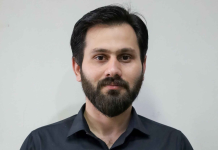By: Qamar Bashir
Macomb, Detroit, Michigan
On Monday, February 10, 2025, President Donald Trump signed a series of executive orders aimed at advancing his “Make America Great Again” agenda. These directives, described as fundamental and radical, are intended to reshape various aspects of American policy. While the long-term effects of these measures remain to be seen, one of the most significant actions was the President’s ultimatum to Hamas. He demanded the release of all hostages by 12:00 PM on Saturday, warning that failure to comply would result in severe consequences, stating, “If they’re not here, all hell is going to break out.”
This declaration follows Hamas’s announcement to delay further hostage releases, citing alleged Israeli violations of the ceasefire agreement. Trump emphasized that while the decision to end the ceasefire ultimately rests with Israel, he personally advocates for its cancellation if the hostages are not freed by the specified deadline.
He also expressed concerns that some hostages may already be deceased, referencing the malnourished condition of recently released individuals. This statement underscores the seriousness of the situation, signaling a potential escalation in military or diplomatic actions against Hamas if the deadline is not met.
The President reiterated the threat multiple times, leaving no room for ambiguity about the gravity of the situation. When pressed by reporters to clarify what exactly “all hell breaking out” would entail, the President responded vaguely but with an ominous tone. This deliberate ambiguity suggests that the administration wants to maintain strategic unpredictability, potentially as a psychological tactic against Hamas.
The President justified his hardline stance by describing the horrific conditions endured by the hostages, comparing them to victims from historical atrocities. He argued that Hamas had likely already sent out the “best-looking” hostages and that the remaining captives might be in even worse condition—or already dead: “I think a lot of them are dead. I think a lot of the hostages are dead. I think it’s a great human tragedy.”
These statements were intended to highlight the urgency of the situation and the moral justification for potential retaliation. Throughout his statements, the President consistently described Hamas in dehumanizing terms to emphasize their brutality: “These are sick people… They’re dealing with very bad people.” “One guy was laughing when a hostage found out his family was dead. That’s the kind of people we’re dealing with.” This language served to justify the administration’s hardline stance and prepare public opinion for potential aggressive actions.
Additionally, Trump has proposed controversial plans to redevelop the Gaza Strip, suggesting the relocation of Palestinians to neighboring countries, aiming to transform it into the “Riviera of the Middle East.” This initiative involves the mass relocation of Gaza’s approximately 2 million Palestinian residents to neighboring countries such as Egypt and Jordan, followed by a comprehensive U.S.-led reconstruction of the area into a luxury coastal destination.
The plan suggests that the United States would finance the development of new, permanent housing for the displaced Palestinians in these neighboring nations. However, both Egyptian and Jordanian officials have rejected the proposal, expressing concerns over its feasibility and the potential for increased regional instability. While Israeli Prime Minister has expressed support for President Trump’s proposal.
The international community has largely condemned the proposal. Critics argue that forcibly relocating Gaza’s residents and denying them the right to return constitutes a violation of international law and could exacerbate tensions in the Middle East. The European Union has reiterated its commitment to a two-state solution, emphasizing that Gaza is an integral part of any future Palestinian state.
The future of Gaza remains a complex and contentious issue. While some proposals focus on redevelopment and economic transformation, they often face significant political, legal, and ethical challenges. The international community continues to debate the best path forward to ensure a peaceful and prosperous future for Gaza and its residents.
The longstanding Israeli-Palestinian conflict has subjected both Israelis and Palestinians to profound suffering, with Gaza and the West Bank often functioning as de facto vassal states under Israeli control. Deep-seated distrust between these communities, as well as among neighboring Middle Eastern nations, has perpetuated a cycle of misery. The current geopolitical framework in the Middle East has inflicted severe hardships on Palestinians, reducing them to pawns in broader regional power struggles. Many stakeholders appear to have abandoned hope for a permanent resolution, instead exploiting the Palestinian issue to advance their own narrow interests. The international community frequently issues calls for restraint, yet lacks the resolve or capability to effect meaningful change. Consequently, Palestinians continue to suffer under the whims of leaders driven by rigid ideologies, such as those who orchestrated the October 7 attacks on Israel without foresight into the devastating repercussions, including Israel’s retaliatory actions that have reportedly resulted in over 60,000 Palestinian deaths.
In this context, President Trump’s proposal to redevelop Gaza offers a potentially practical and lasting solution. If implemented as envisioned, it could usher in an era of sustained peace, providing Palestinians with an unprecedented opportunity to live without the constant threat of violence. Critics may hastily dismiss Trump’s plan, but alternatives are scarce. Hamas seeks the complete destruction of Israel, while Israel aims for the total eradication of Hamas. The international community, composed of transient bureaucrats adept at making grand declarations without genuine investment in the conflict, remains ineffectual. In this volatile situation, Trump’s plan may represent the sole viable path forward. With full commitment from the U.S., there is little that could impede its realization. While it is easy to become emotionally swayed by religious rhetoric, it is essential to remember that all religions advocate for peace and coexistence. Humanity has too often transformed religion into a political weapon, causing immense suffering by adhering to misguided and destructive convictions.
By: Qamar Bashir
Press Secretary to the President (Rtd)
Former Press Minister at Embassy of Pakistan to France
Former MD, SRBC

















